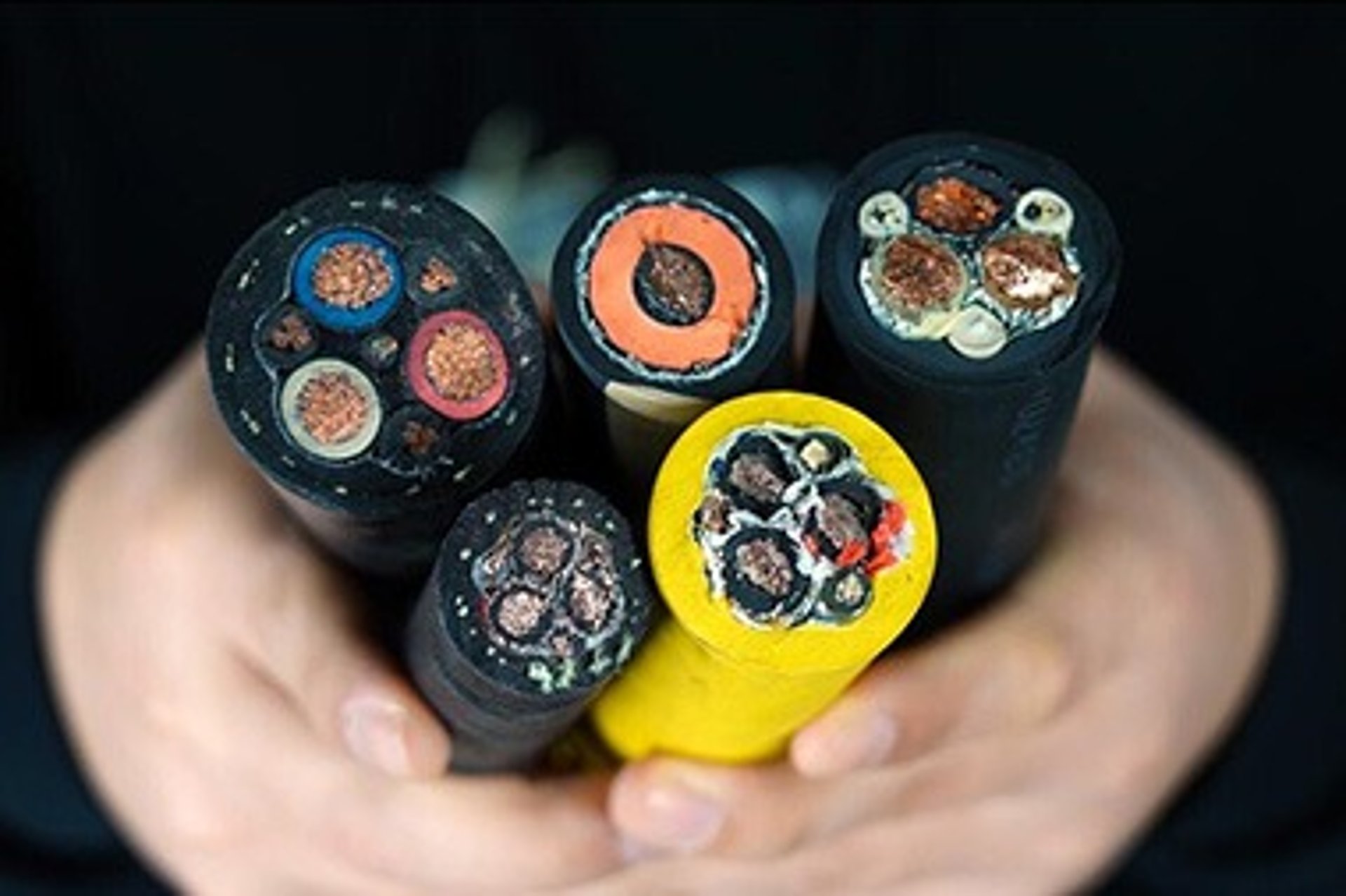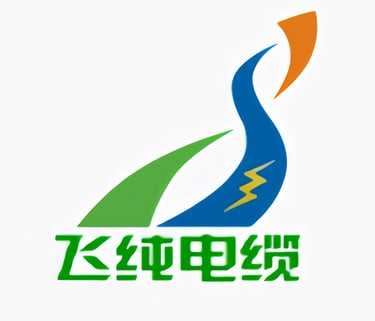Anhui Feichun Special Cable Co.,Ltd Email: Li.wang@feichuncables.com

6.35/11kV XLPE Insulated, MDPE Sheathed, Armoured MV Power Cables (Single Core)
Application
They are suitable for installation mostly in power supply stations, indoors and in cable ducts, outdoors, underground and in water as well as for installation on cable trays for industries, switchboards and power stations.
Standards
Basic design adapted to IEC 60502-2
Construction
Conductor : Plain annealed copper wire, stranded according to IEC/BS EN 60228 class 2..
Conductor Screen : Extruded layer of semi-conducting cross-linkable compound is applied over the conductor and shall cover the surface completely.
Insulation : Extruded cross-linked compound type (XLPE)
Insulaton Screen : Extruded layer of semi-conducting cross-linkable compound is applied over the insulation.
Metallic Screen : The metallic layer shall be applied as a collective screen. The metallic screen shall consist of either copper tapes or a concentric layer of copper wires or a combination of tapes and wires.
Separation Sheath : Thermoplastic PVC compound.
Armour : Aluminium tape or Aluminium wire.
Outer Sheath : Thermoplastic MDPE compound Type ST7 according to IEC 60502-2.The overall cable design will be more suitable for wet locations.
Outer Sheath Option : UV resistance, hydrocarbon resistance, oil resistance and anti-rodent can be offered as option.
COLOUR CODE
Insulation Colour : Natural colouring.
Sheath Colour : Red
PHYSICAL PROPERTIES
Operating Temperature : up to 90°C
Temperature Range: -5°C
Short Circuit Temperature( 5 seconds maximum duration ) : 250°C
Bending Radius : 20 x OD
Nominal /Operating /Testing Voltages
Rated Voltage Uo/U | Operating Voltage (Um) | Testing Voltage (rms) |
|---|---|---|
6.35/11KV | 12KV | 25.5KV |
DIMENSIONAL DATA
N2XSYB2Y (CU/XLPE/CS/PVC/ATA/PE 6.35/11kV Class 2)
Nom. Cross-Section Area | Nom. Insulation Thickness | Copper Wire Screen Area | Copper Tape Screen Area | Nom. Bedding Thickness | Nom. Armour Tape Thickness | Nom.Sheath Thickness | Approx. Overall Diameter | Approx. Weight |
|---|---|---|---|---|---|---|---|---|
mm² | mm | mm² | mm² | mm | mm | mm | mm | kg/km |
3.4 | 16 | 8.2 | 1.2 | 0.5 | 1.9 | 30.8 | 7590 | |
3.4 | 16 | 8.9 | 1.2 | 0.5 | 1.9 | 32.4 | 6240 | |
3.4 | 16 | 9.8 | 1.2 | 0.5 | 2.0 | 34.0 | 5150 | |
3.4 | 25 | 10.4 | 1.2 | 0.5 | 2.1 | 36.7 | 4160 | |
3.4 | 25 | 11.2 | 1.2 | 0.5 | 2.1 | 37.4 | 3260 | |
3.4 | 25 | 12.4 | 1.2 | 0.5 | 2.2 | 40.1 | 3010 | |
3.4 | 25 | 13.4 | 1.2 | 0.5 | 2.2 | 42.1 | 2650 | |
3.4 | 35 | 14.6 | 1.2 | 0.5 | 2.4 | 46.2 | 2214 | |
3.4 | 35 | 16.2 | 1.3 | 0.5 | 2.5 | 49.0 | 2020 | |
3.4 | 35 | 18.9 | 1.4 | 0.5 | 2.6 | 54.4 | 1700 |
N2XSYR2Y (CU/XLPE/CS/PVC/AWA/PE 6.35/11kV Class 2)
Nom. Cross-Section Area | Nom. Insulation Thickness | Copper Wire Screen Area | Copper Tape Screen Area | Nom. Bedding Thickness | Nom. Armour Wire Diameter | Nom.Sheath Thickness | Approx. Overall Diameter | Approx. Weight |
|---|---|---|---|---|---|---|---|---|
mm² | mm | mm² | mm² | mm | mm | mm | mm | kg/km |
3.4 | 16 | 8.2 | 1.2 | 1.6 | 1.9 | 32.0 | 8230 | |
3.4 | 16 | 8.9 | 1.2 | 1.6 | 1.9 | 33.6 | 6780 | |
3.4 | 16 | 9.8 | 1.2 | 1.6 | 2.0 | 35.2 | 5589 | |
3.4 | 25 | 10.4 | 1.2 | 1.6 | 2.1 | 37.9 | 4490 | |
3.4 | 25 | 11.2 | 1.2 | 2.0 | 2.1 | 39.4 | 3490 | |
3.4 | 25 | 12.4 | 1.2 | 2.0 | 2.2 | 42.1 | 3240 | |
3.4 | 25 | 13.4 | 1.2 | 2.0 | 2.2 | 44.1 | 2870 | |
3.4 | 35 | 14.6 | 1.2 | 2.0 | 2.4 | 48.2 | 2430 | |
3.4 | 35 | 16.2 | 1.3 | 2.5 | 2.5 | 52.0 | 2130 | |
3.4 | 35 | 18.9 | 1.4 | 2.5 | 2.6 | 57.4 | 1840 |



Introduction
In the realm of electrical engineering, medium voltage (MV) power cables form the backbone of efficient energy distribution systems, bridging the gap between high-voltage transmission lines and low-voltage consumer networks. Among these, the 6.35/11kV XLPE insulated, MDPE sheathed, and armoured single-core cables stand out for their robustness and versatility. These cables, often designated under standards like IEC 60502-2, are engineered to withstand demanding environments, from underground installations to overhead trays in power stations.
Applications and Installation Versatility
These cables excel in diverse applications, primarily in power supply stations, indoors, cable ducts, outdoors, underground, and even in water. Their suitability for cable trays in industries, switchboards, and power stations underscores their adaptability. The armoured construction protects against mechanical stresses in buried or tray-mounted setups, making them ideal for South Africa's mining and manufacturing sectors where vibrations and impacts are common.
Installation perspectives highlight the cables' bending radius of 20 times overall diameter (OD), allowing manoeuvrability in confined spaces. For underground burial, the MDPE sheath's water resistance prevents moisture ingress, a critical factor in regions prone to flooding. In air-laid configurations, the cables' thermal properties ensure efficient heat dissipation.
From an environmental standpoint, these cables contribute to sustainable infrastructure by minimising energy losses through low AC resistance (e.g., 343 µΩ/m for 70 mm²). Their recyclability—copper conductors and polyethylene sheaths—aligns with green building initiatives.
Advantages, Challenges, and Future Innovations
Advantages abound: XLPE's superior thermal rating over PVC allows higher ampacity, while MDPE sheathing outperforms traditional PVC in wet environments. Armouring variants provide cost-effective protection, with N2XSYB2Y's tape armour suiting lighter duties and N2XSYR2Y's wire armour for heavier impacts.
Challenges include higher initial costs due to copper and specialised compounds, though offset by lower maintenance. In South Africa, supply chain vulnerabilities from imports necessitate local production incentives.
Future innovations may integrate smart sensors for real-time monitoring, enhancing predictive maintenance amid renewable integration. Environmental perspectives push for halogen-free alternatives, reducing fire hazards.
Economically, these cables' efficiency lowers total ownership costs, supporting infrastructure projects like the Integrated Resource Plan.
The 6.35/11kV XLPE insulated, MDPE sheathed, and armoured single-core MV power cables represent a pinnacle of cable technology, blending robust construction with superior electrical performance. From detailed layer analysis to application versatility, they address the multifaceted demands of modern power distribution. As South Africa advances towards energy security, these cables will play a crucial role, embodying reliability and innovation.

Email Address: Li.wang@feichuncables.com
© 2025. All rights reserved.


One-click to Quickly Contact
Products
Contact
Company
Location:
Building A Private Science and Technology Park, Hefei Economic and Technological Development Zone, Anhui Province, China
Heat Resistant Cable
WhatsApp: +86 17333223430
